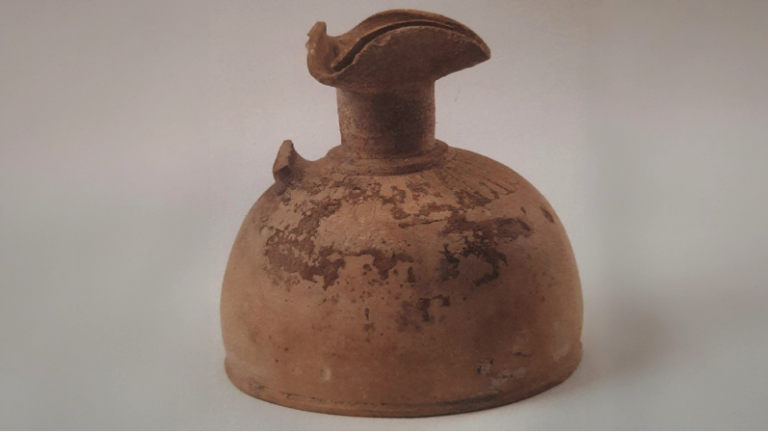Another ancient Greek object, which was illegally exported from Greece during the German occupation, is being repatriated, reinforcing the international, resounding message in favour of returning stolen antiquities to their places of origin.
It is an early Corinthian wine vessel with a stopper and painted decoration, i.e. a wine pouring vessel, dating between 620 and 600 BC, which was in the August Kestner Museum in Hannover since 1986 and is being returned after its illegal origin was confirmed.
According to the letter accompanying it, the three-leaved vase in question had been found in 1943 by German conquerors during excavations at the southern end of the Corinth Canal.
It was then found in the hands of the geology professor Dr. Hannfrit Putzer who handed it over to the August Kestner Museum.
On the initiative of the Municipality of Hannover and in close cooperation with the competent Greek authorities, an in-depth investigation was launched to establish whether the information contained in the letter was indeed true.
It took almost two years before the ancient Greek object was adequately documented, its illegal origin was verified and the procedures for its repatriation were initiated.
Yesterday, during a special ceremony held at the August Kestner Museum, the Mayor of Hanover, Belit Onay, handed over the vase to the Consul General of Greece in Hamburg, Ioannis Vikelidis, and it has now been returned.
“The August Kestner Museum joins the group of international museums, which in recent years have made a significant effort to investigate issues of provenance of objects in their collections.
Museums whose staff have the courage to make the results of their investigations known and to return to Greece objects that they find to be linked to illegal acts.
The Municipality of Hannover, in implementation of its commitment to return cultural property stolen during the Nazi occupation to its rightful owners, is returning antiquities to Greece.
Language developed 8 times earlier than previously thought, says new book (video)
The decision of the Municipality of Hannover and the August Kestner Museum is practical proof of their willingness to contribute to the restoration of the damage suffered by the cultural heritage of Greece, but also to defend the reputation of the August Kestner Museum,” notes Culture Minister Lina Mendoni, adding: “The Greek state, from the first years after the end of the war, made systematic efforts to identify and repatriate the antiquities that were the spoils of the occupying forces.
This effort continues, tirelessly, to this day by the competent Directorate of Documentation and Protection of Cultural Property of the Ministry of Culture, bearing steady fruit.
Museums, such as the August Kestner Museum, that undertake such initiatives are valuable allies in this effort.”
Ask me anything
Explore related questions





